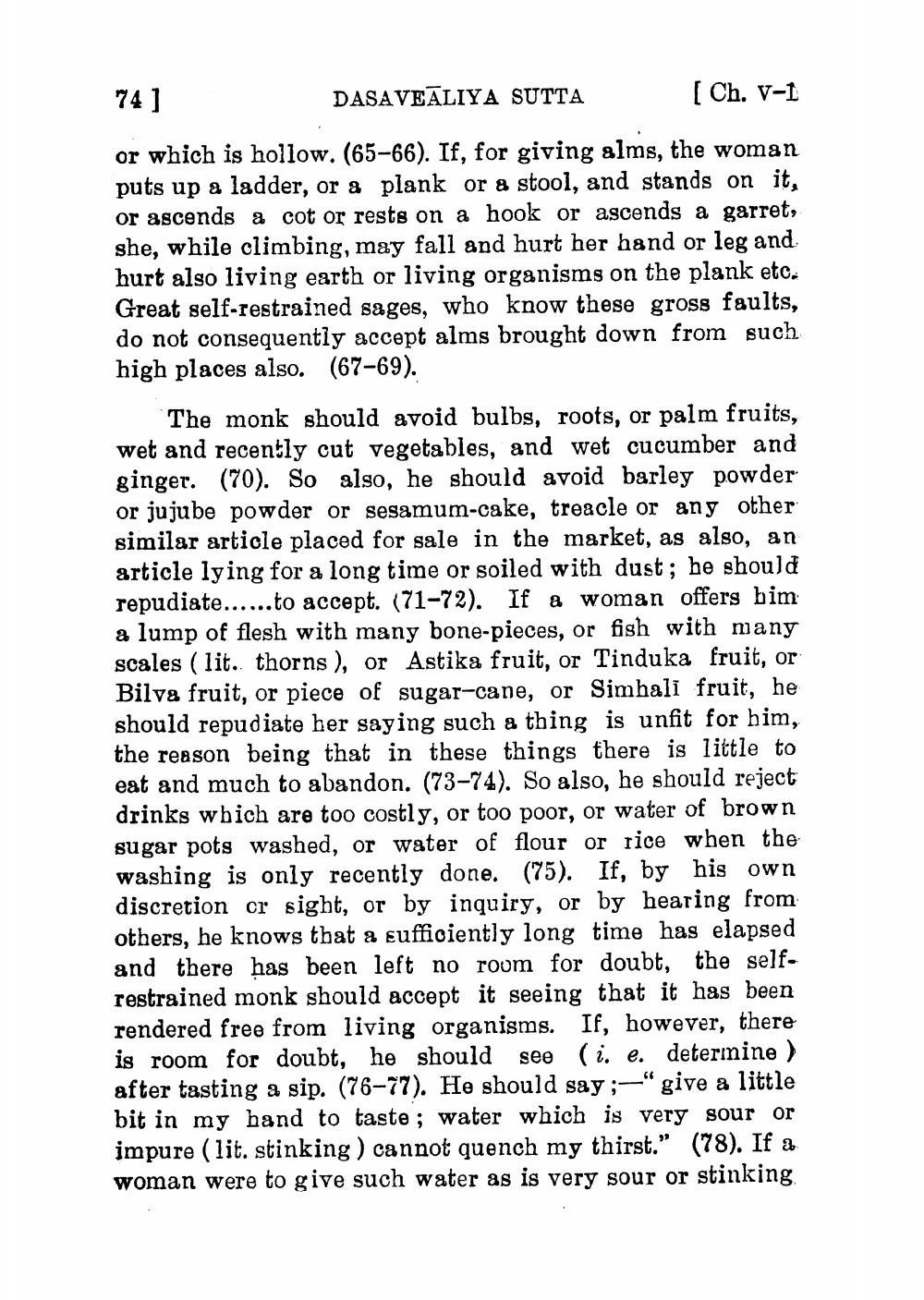________________
74]
DASAVEĀLIYA SUTTA
[ Ch. V-1
or which is hollow. (65-66). If, for giving alms, the woman puts up a ladder, or å plank or a stool, and stands on it, or ascends & cot or rests on a hook or ascends a garret, she, while climbing, may fall and hurt her hand or leg and hurt also living earth or living organisms on the plank etc. Great self-restrained sages, who know these gross faults, do not consequently accept alms brought down from such high places also. (67–69).
The monk should avoid bulbs, roots, or palm fruits, wet and recently cut vegetables, and wet cucumber and ginger. (70). So also, he should avoid barley powder or jujube powder or sesamum-cake, treacle or any other similar article placed for sale in the market, as also, an article lying for a long time or soiled with dust; he should repudiate......to accept. (71-72). If a woman offers bim a lump of flesh with many bone-pieces, or fish with many scales (lit. thorns), or Astika fruit, or Tinduka fruit, or Bilva fruit, or piece of sugar-cane, or Simhali fruit, he should repudiate her saying such a thing is unfit for him, the reason being that in these things there is little to eat and much to abandon. (73-74). So also, he should reject drinks which are too costly, or too poor, or water of brown sugar pots washed, or water of flour or rice when the washing is only recently done. (75). If, by his own discretion cr sight, or by inquiry, or by hearing from others, he knows that a sufficiently long time has elapsed and there has been left no room for doubt, the selfrestrained monk should accept it seeing that it has been rendered free from living organisms. If, however, there is room for doubt, he should see (i. e. determine ) after tasting a sip. (76-77). He should say ;-"give a little bit in my hand to taste ; water which is very sour or impure (lit. stinking ) cannot quench my thirst.” (78). If a woman were to give such water as is very sour or stinking,




